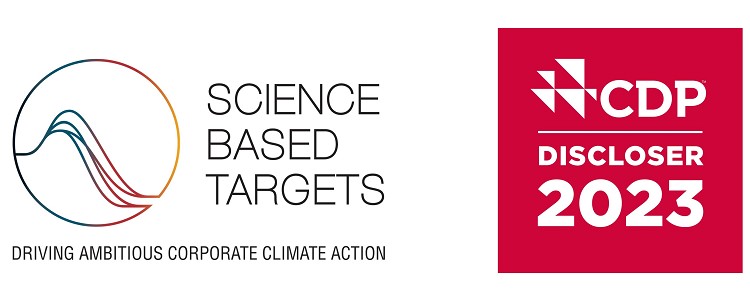DIC Is Named an Asia–Pacific Climate Leader for the First Time —One of 350 outstanding companies contributing to the reduction of greenhouse gas emissions recognized by the Financial Times (United Kingdom) and Statista (Germany)—
- Sustainability
- News Release
Tokyo, Japan—DIC Corporation announced today that it has been selected for the first time for inclusion in the Asia–Pacific Climate Leaders 2024 list. Compiled by the United Kingdom–based Financial Times business and economic journal and German research provider Statista GmbH, this list recognized 350 companies in the Asia–Pacific region that have made outstanding contributions to the reduction of greenhouse gas emissions.
Related Financial Times article: https://www.ft.com/climate-leaders-asia-pacific-2024
The Asia–Pacific Climate Leaders list scrutinizes data from approximately 2,000 companies headquartered in the Asia–Pacific region* and assesses compound annual greenhouse gas emissions relative to net sales from fiscal years 2017 through 2022. It then assigns a score based on the reduction of Scope 1 and 2 greenhouse gas emissions over that period, as well as on Scope 3 emissions,† CDP‡ evaluation and Science Based Targets initiative (SBTi)§ endorsement.
In June 2021, DIC announced DIC NET ZERO 2050, which sets a target of achieving carbon neutrality—net zero CO₂ emissions (Scope 1 and 2)—by fiscal year 2050. The Company is working with its approximately 180 Group companies around the world to achieve its interim goal of a 50% reduction in CO₂ emissions (Scope 1 and 2) from the fiscal year 2013 level by fiscal 2030. The Company believes its inclusion in the Asia–Pacific Climate Leader 2024 list reflects the positive appraisal of these efforts.
The DIC Group will continue to work with its business partners, as well as with local communities, in the approximately 60 countries and territories in which it operates, to promote initiatives aimed at reducing CO₂ emissions.
* “Asia–Pacific region,” as used here, encompasses Australia, Hong Kong, India, Indonesia, Japan, Macau, Malaysia, New Zealand, the Philippines, Singapore, the Republic of Korea, Taiwan, Thailand and Vietnam.
† Scope 1: Direct emissions from sources owned or controlled by a company. Scope 2: Indirect emissions attributable to the consumption of purchased electric power and other energy. Scope 3: All indirect emissions not included in Scope 2.
‡ The CDP is a not-for-profit organization that runs a global system for the disclosure of environmental information by companies and local governments and provides influential programs for assessing the environmental performance of companies worldwide. The DIC Group received a score of B in CDP’s climate change program in fiscal year 2023.
§ The SBTi, an international framework for combatting global warming that encourages companies to set science-based greenhouse gas emissions reduction targets that are in line with the goal of the Paris Agreement, endorses targets set by companies for the next five to 15 years as “science-based” if they are consistent with what climate science deems necessary to limit average global warming to well below 2°C above pre-industrial levels and the pursuit of a limit of 1.5°C. The SBTi has become the global standard for the setting of greenhouse gas emissions targets.
– Ends –
Related news releases
■ The DIC Group’s Greenhouse Gas Emissions Reduction Targets Receive Official Endorsement from the SBTi (February 9, 2023)
https://www.dic-global.com/en/news/2023/csr/20230208161559.html
■ DIC Group Revises Its Long-Term Target for the Reduction of CO₂ Emissions in Line with its New Goal of Achieving Carbon Neutral (June 18, 2021)
https://www.dic-global.com/en/news/2021/csr/20210624092154.html


